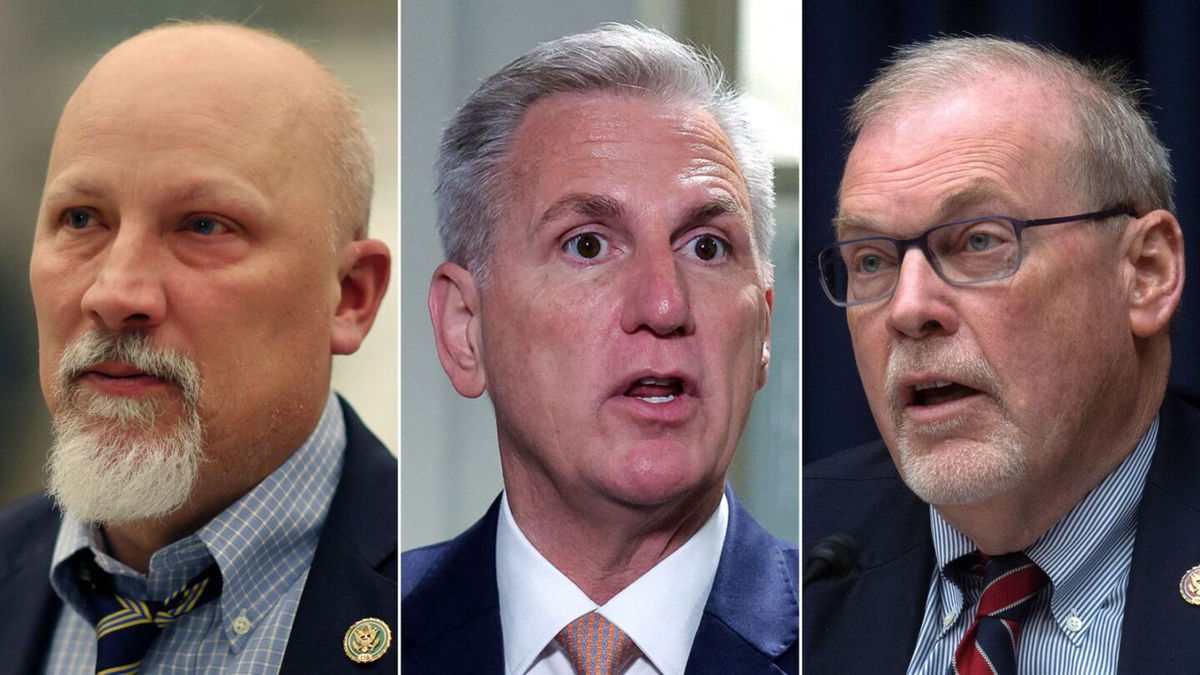Conservatives already sounding alarms over prospect of a short-term spending bill

By Lauren Fox and Morgan Rimmer, CNN
(CNN) — A handful of conservatives in the House are already raising concerns about the length of a short-term budget fix after House Speaker Kevin McCarthy said Monday night in a conference-wide call that Republicans would need to pass a measure extending current spending levels in order to have more time to negotiate spending bills and avert a government shutdown.
McCarthy didn’t indicate how long of a short-term stop gap bill he’d want to pass, telling members Monday he wanted to avoid backing the deadline right up against the holidays, but some House conservatives are already making it clear they may not go along with any so-called continuing resolution – or CR – that is more than a few weeks or days.
In a statement to CNN, Rep. Chip Roy, a Texas Republican and member of the powerful House Rules Committee, said he would “under no circumstances” support a continuing resolution to fund the government at “the bloated, corrupt 2023 levels … and in particular, that funds (the Department of Homeland Security) and (Justice Department) without massive, immediate, actionable reforms.”
“This is especially true if it were to stupidly expire in December. I might-might support a short series of 24-hour CRs to create maximum pain for Congress to do its damned job, which by the way – we could be doing in Washington right now,” Roy said.
Virginia Rep. Morgan Griffith, another conservative, told reporters at the Capitol on Tuesday that he wouldn’t want a continuing resolution that went any longer than a matter of weeks, saying his preference was just two weeks.
“If we need a few weeks, I can probably live with that,” he said, adding that, “I think we should do two weeks and if we need to do another week after that, fine.”
He also told reporters that he would not want to attach more money for Ukraine to the short-term CR, saying it was an issue that should be debated separately. The White House has requested an additional $24 billion in military and humanitarian aid for the country. The White House also requested billions in domestic disaster relief.
“I reserve the right to be inconsistent on this, but in a perfect world, they should be separate votes,” Griffith said. “You should not have the supplemental and the CR together.”
McCarthy could easily pass a continuing resolution with a bipartisan coalition of support in the House, and he may be forced to do so or risk shutting down the government, but the early warning shots from conservatives once again raises the question of how McCarthy will navigate a messy fall spending fight without angering his right flank. And this is just the short-term spending bill that will give leadership more time to negotiate a broader package of bills with the Senate. A larger year-long spending bill is going to be even more precarious to navigate.
In an early sign of the headwinds facing negotiators before the August recess, House leaders chose not to bring an agriculture spending bill to the floor after conservatives insisted on another $8 billion in cuts that could have hurt support among more moderate members. House leaders still have 11 appropriations bills to pass on the floor and that’s before they get to conferencing them with the Senate, which has moved its bills out of committee with bipartisan support and at much higher funding levels.
In his pitch to members Monday night, McCarthy tried to rally party unity, telling his conference that the Senate was passing its bills by huge bipartisan margins and encouraging his conference to unite swiftly when they return to Washington to have the best hand possible in negotiations with the upper chamber. But the early warnings from conservatives on even passing a short-term stopgap measure spells just how complicated the fall will be for McCarthy.
“What really worries me about this process is you have got speaker McCarthy being led around by the nose by his most extreme right wing elements,” Democratic Sen. Chris Van Hollen of Maryland told reporters on Tuesday.
Senate Majority Leader Chuck Schumer said he “was glad,” to hear the reports that McCarthy was pushing his conference to agree to a short-term measure to keep the government open past September 30 and warned conservatives to fall in line.
“If we do this in a bipartisan way, I’m confident we can avoid a government shutdown,” Schumer, a Democrat from New York, told reporters on a call Tuesday morning. “If the House Republicans and the Freedom Caucus insists on doing this partisan, so it’s extreme and gets no Democratic votes, they’re heading us towards a shutdown.”
Schumer added that he thinks the funding extension should last until early December.
The-CNN-Wire
™ & © 2023 Cable News Network, Inc., a Warner Bros. Discovery Company. All rights reserved.